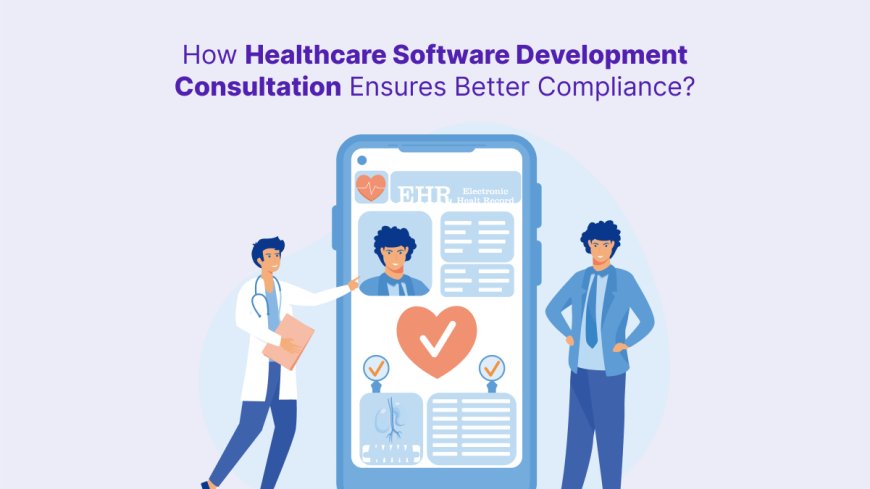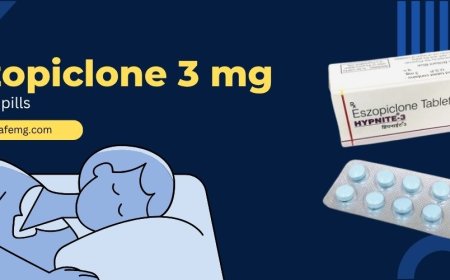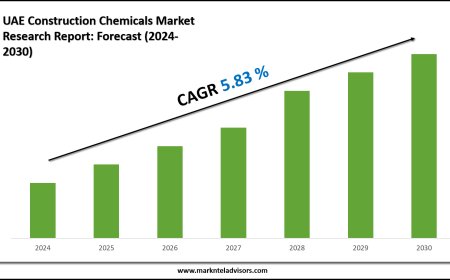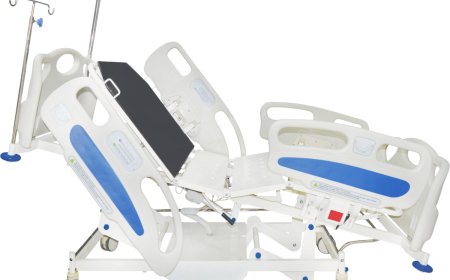How Healthcare Software Development Consultation Ensures Better Compliance?
Learn how healthcare software development consultation ensures better compliance with expert guidance, secure systems, and up-to-date industry standards.

Healthcare is an industry that handles highly sensitive information, such as patient records, medical histories, and billing details. Because of the sensitive nature of this data, healthcare providers are bound by strict regulations and laws designed to protect patient privacy and ensure data security. Compliance with these regulations is not just a legal obligation but also essential for maintaining patient trust and avoiding costly penalties.
Developing healthcare software that meets these compliance requirements is a complex task. This is where healthcare software development consultation becomes crucial. Expert consultation guides healthcare organizations in designing and implementing software solutions that align perfectly with regulatory standards. This blog will explain how healthcare software development consultation ensures better compliance, the benefits it brings, and why it is a wise investment for any healthcare provider.
Understanding Compliance in Healthcare Software Development
What Does Compliance Mean?
Compliance in healthcare software means adhering to a set of laws and regulations that govern how patient data should be handled, stored, and shared. Common regulations include HIPAA (Health Insurance Portability and Accountability Act) in the United States, GDPR (General Data Protection Regulation) in Europe, and other local or regional laws.
These regulations set clear rules about data privacy, consent, security protocols, breach reporting, and much more. Healthcare software must be designed to meet these rules at every step to prevent legal troubles and protect patient information.
Why Is Compliance Challenging?
Healthcare compliance is challenging because regulations are detailed, frequently updated, and sometimes complicated to interpret. Also, healthcare organizations often use multiple systems that must work together while maintaining security. Without expert guidance, software developers might miss critical compliance aspects, leading to vulnerabilities and non-compliance.
The Role of Healthcare Software Development Consultation
Healthcare software development consultation involves partnering with experts who understand both technology and healthcare regulations. These consultants analyze your organization's needs, the current regulatory landscape, and help plan software solutions that ensure compliance from the start.
Assessment and Gap Analysis
Consultants begin by assessing your current systems, workflows, and compliance status. They perform gap analysis to identify where your existing software or processes fall short of regulatory requirements. This helps in creating a roadmap for software development that prioritizes closing these gaps.
Customized Compliance Strategy
Healthcare providers have different workflows, patient types, and risk levels. A one-size-fits-all compliance approach doesnt work well. Consultants work with you to create a customized strategy that fits your organizations specific needs and challenges. This tailored plan ensures that compliance controls are practical and effective.
Regulatory Expertise
Regulations like HIPAA and GDPR are complex and can be interpreted in various ways. Healthcare software development consultants stay updated on regulatory changes and best practices. They help translate these requirements into technical specifications that software developers can implement correctly.
How Consultation Ensures Better Compliance During Software Development
Designing with Compliance in Mind
Consultants guide developers in building software architecture that integrates security and privacy controls from the very beginning. This compliance by design approach means that features such as data encryption, access controls, and audit logs are embedded into the system rather than added later as an afterthought.
Data Security Protocols
Consultants ensure that software incorporates robust security protocols. This includes encrypting data both at rest and in transit, using secure authentication methods like multi-factor authentication, and setting up role-based access controls to limit who can view or modify sensitive information.
Documentation and Audit Trails
Regulations often require detailed records of who accessed patient data and when. Consultants help implement automated audit trail features that log user activities in the software. These logs are essential for internal audits and regulatory inspections.
Risk Management and Incident Response
Consultants assist in creating risk management frameworks to identify and mitigate potential compliance risks. They also help define incident response plans within the software, enabling quick actions if a data breach or other security event occurs. This proactive planning is critical for reducing the impact of any compliance issues.
Training and Awareness
Better compliance is not only about technology but also about people. Consultants often advise on training programs to educate staff on using the software correctly and understanding compliance responsibilities. Well-informed users reduce the risk of accidental breaches.
Benefits of Healthcare Software Development Consultation for Compliance
Avoiding Costly Penalties
Non-compliance can result in heavy fines, legal battles, and loss of accreditation. Consulting ensures your software meets regulatory requirements, helping you avoid these costly consequences.
Building Patient Trust
Patients expect their information to be safe. Compliance demonstrates your commitment to privacy and security, strengthening patient trust and loyalty.
Streamlining Audits
With compliance features built into the software, audits become simpler and less stressful. Automated reports and logs provide clear evidence of compliance to regulators.
Enhancing Operational Efficiency
Consultants help balance compliance with usability. Well-designed software can automate compliance tasks, reduce manual paperwork, and free staff to focus more on patient care.
Future-Proofing Your Software
Healthcare regulations evolve over time. Consultants help design software with flexibility so it can adapt to new rules without requiring costly rewrites.
Read more: How to Maximize ROI with a Healthcare Software Development Company?
Common Compliance Challenges Addressed by Consultation
Managing Consent and Patient Rights
Regulations require explicit patient consent for data use and give patients rights to access or correct their information. Consultation ensures these features are included in the software with easy-to-use interfaces.
Data Interoperability with Security
Healthcare systems need to share data securely with other providers, labs, or insurers. Consultants help create secure APIs and standards-compliant data exchange methods that maintain compliance.
Keeping Up with Regulatory Changes
Consultants monitor changes in laws and advise on necessary software updates. This keeps your systems compliant without disrupting operations.
Case Study: How Consultation Improved Compliance for a Healthcare Provider
A mid-sized healthcare clinic was struggling with fragmented software that didnt fully comply with HIPAA. After engaging with a healthcare software development consultation service, the clinic underwent a thorough assessment. Consultants identified gaps in data encryption, access controls, and audit logging.
They worked with the development team to redesign the software incorporating compliance features like encrypted patient portals, role-based access, and automated compliance reports. Staff training programs were also introduced.
As a result, the clinic passed subsequent regulatory audits without issues, reduced the risk of data breaches, and improved patient confidence in their services. The consultation process not only ensured compliance but also improved the overall software quality and user experience.
Conclusion
Healthcare software development consultation plays a critical role in ensuring that healthcare organizations meet complex compliance requirements. By partnering with experts who understand both technology and healthcare regulations, organizations can develop software solutions designed with compliance built-in from the ground up.
Consultation guides the entire processfrom assessing existing gaps and customizing compliance strategies to embedding security features, managing risks, and training users. This proactive approach helps avoid costly penalties, build patient trust, and streamline audits while enhancing operational efficiency.
Healthcare compliance is an ongoing challenge, but with the right consultation, your software can remain adaptable to future regulatory changes, protecting your organization for years to come. Choosing to work with a knowledgeable app development company that offers healthcare software consultation is a smart investment toward building secure, compliant, and effective healthcare technology solutions.
FAQs
What is healthcare software development consultation?
It is expert guidance provided to healthcare organizations during software development to ensure the solutions comply with healthcare laws and regulations.
Why is compliance important in healthcare software?
Compliance protects patient data, avoids legal penalties, and builds trust between healthcare providers and patients.
How does consultation help with regulatory updates?
Consultants stay current on laws and help implement software updates to maintain ongoing compliance with new requirements.
What are common compliance features in healthcare software?
Encryption, role-based access, audit trails, consent management, and secure data sharing are typical compliance features.
Can consultation improve software usability along with compliance?
Yes, consultants help balance compliance needs with user-friendly design and effective training, improving overall software adoption and efficiency.






































